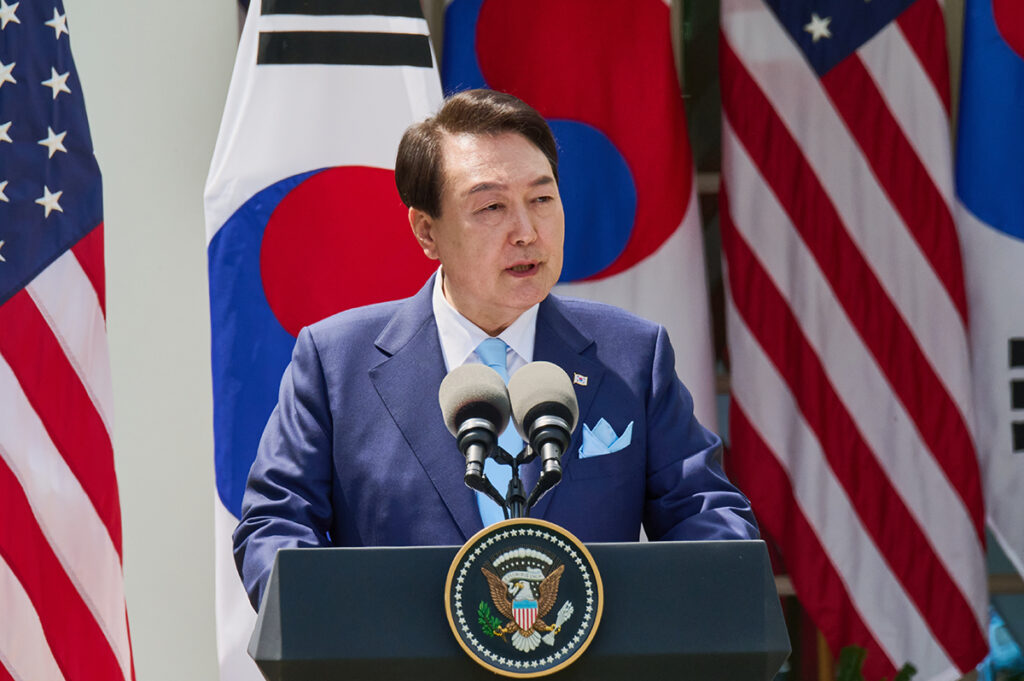South Korea has reached a critical point in its political landscape, as lawmakers voted to impeach President Yoon Suk Yeol following his controversial martial law declaration earlier this month. This decision has led to the suspension of his presidential duties, leaving the country in a state of uncertainty and igniting widespread debate surrounding leadership, democracy, and political accountability.
Historic Impeachment Decision in South Korea’s National Assembly On Saturday, the National Assembly of South Korea held a significant vote, with 204 members in favor and 85 against, passing the impeachment motion against President Yoon. This unprecedented move followed his December 3 martial law announcement, the first in more than four decades. The impeachment documents were quickly sent to Yoon and the Constitutional Court, resulting in the temporary suspension of his powers. Prime Minister Han Duck-soo has assumed the role of acting president in the interim.
The Constitutional Court now has a period of up to 180 days to rule on whether Yoon will be permanently removed from office or reinstated. If the court decides to oust him, a national election must be held within 60 days to select a new leader.
Mass Public Outrage and Political Chaos Yoon’s brief declaration of martial law triggered significant political unrest and had a destabilizing impact on financial markets. While the president defended his actions as essential for maintaining order, the National Assembly swiftly overruled the decree. This led to massive public protests, with thousands of South Koreans marching through Seoul, calling for his resignation and even arrest.
Opposition leader Lee Jae-myung hailed the impeachment vote as a victory for democracy, stating, “This outcome proves the people are the true rulers of the nation, marking the beginning of a new era for democracy,” according to Yonhap News Agency.
Yoon’s approval ratings have sharply fallen, with some members of his own People Power Party (PPP) siding with the impeachment motion in light of the martial law controversy.
Legal and Criminal Proceedings Begin The impeachment not only removed Yoon from office but also placed him under the scrutiny of legal authorities. Investigations are underway to determine whether Yoon and other officials involved in the martial law declaration are guilty of crimes such as rebellion and abuse of power. Rebellion charges are particularly severe, carrying potential sentences ranging from life imprisonment to the death penalty.
While the president enjoys immunity from general criminal prosecution, this immunity does not cover charges related to treason or rebellion. However, analysts believe that authorities may hesitate to arrest him forcibly, given the potential for conflict with his security team.
Several key figures, including Yoon’s defense minister, police chief, and the head of Seoul’s metropolitan police, have already been detained for their roles in the martial law declaration. Investigations into other high-ranking military and government officials are ongoing.
South Korea’s Future: A Democracy Under Pressure South Korea is now in a period of anticipation as the Constitutional Court prepares to make its ruling on Yoon’s political future. The impeachment has highlighted the vulnerability of democratic institutions when faced with crises of leadership. Public opinion remains divided, with conservative groups holding counterprotests and claiming the impeachment was politically motivated.
As the country navigates this political storm, questions surrounding democracy, accountability, and governance are at the forefront. The court’s ruling will have lasting implications for the nation’s political trajectory, with its future direction hanging in the balance.
The impeachment of President Yoon has underscored South Korea’s resilience in the face of political instability. Whether this marks a significant moment for democracy or further entrenches divisions within society, it is clear that the people’s voices are shaping the course of the nation. As global attention remains fixed on South Korea, the country must confront this defining moment with determination and unity.


